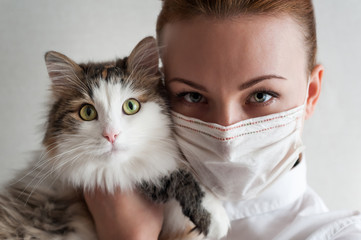NHS Watchdog Raises Alarm: Exhaustion Among Hospital Staff Poses Serious Risks to Patient Safety

In a troubling revelation, England's NHS safety watchdog has warned that extreme exhaustion among healthcare staff is significantly jeopardizing patient safety across hospitals. The Health Services Safety Investigations Body (HSSIB) has highlighted alarming instances of medication mishaps, impaired judgment, and even discourteous conduct as prevalent issues stemming from staff fatigue.
While concrete data on the magnitude of this issue remains scarce, the watchdog referenced insights gathered from staff surveys alongside testimonies from safety experts, indicating that staff fatigue is a notable contributor to safety incidents. The report contained sobering examples, including missteps during pregnancy scans and errors related to chemotherapy medications.
One particularly concerning incident involved a mother and her baby who suffered harm due to an erroneous pregnancy scan. A staff member attributed the mistake to overwhelming fatigue and an excessive workload. In a separate chemotherapy case, healthcare professionals were found to be nearly nine hours into a demanding 12.5-hour shift, having only managed a mere five to six hours of sleep between their shifts, compounded by the pressures of insufficient breaks due to staffing shortages. An internal investigation subsequently determined that fatigue was "likely to have been a factor" in the error.
Many hospital staff members reported experiencing chronic sleep deprivation. One doctor shared with the watchdog the reality of working three consecutive 12-hour night shifts, stating, When it gets to that third day of doing these 12-hour nights, it's dangerous from 2 am onwards... do I have the energy or the brain space or the mental space to even make a life-changing decision for a patient at this point? This quote poignantly underscores the dire situation faced by healthcare professionals.
The risks of exhaustion extend beyond their impact on patient care; staff themselves are at risk. Several healthcare workers reported drowsiness while driving home post-shift, with some tragically succumbing to fatal road accidents after long work hours. The factors contributing to this alarming level of fatigue are multifaceted, encompassing long shift hours, lack of adequate breaks, personal caring responsibilities, and financial stressors.
One of the key issues highlighted in the report is the frequent misconception within the NHS that staff fatigue is merely a personal wellbeing concern, rather than a critical patient safety issue. The watchdog has called upon the government and NHS England to implement better systems for monitoring fatigue, alongside collaborative efforts with unions and employers to raise awareness about the gravity of the issue.
Saskia Fursland, a senior investigator at the HSSIB, emphasized, Fatigue is more than just being tired - it can significantly impair decision-making, motor skills, and alertness. We must move away from viewing fatigue as an individual issue and instead treat it as a system-level risk that deserves urgent attention.
Dr. Latifa Patel from the British Medical Association echoed these sentiments, expressing that the findings, while concerning, were not unexpected. She noted that doctors are routinely subjected to prolonged shifts with minimal opportunities for rest. Dr. Patel advocated for better scheduling practices to ensure that staff are afforded adequate recovery time between shifts and that hospitals offer improved facilities for rest.
However, she also pointed out that workforce shortages are a significant driver of fatigue among staff. A spokesperson for NHS England acknowledged the risk of burnout among healthcare workers, affirming their commitment to providing the necessary support to ensure safe patient care. Staff should always feel confident to report patient safety concerns, including those linked to fatigue, and we will work with local NHS systems to address any issues, the spokesperson stated. Furthermore, NHS England is offering more flexible working arrangements than ever before, along with a variety of mental health support options available for staff.













